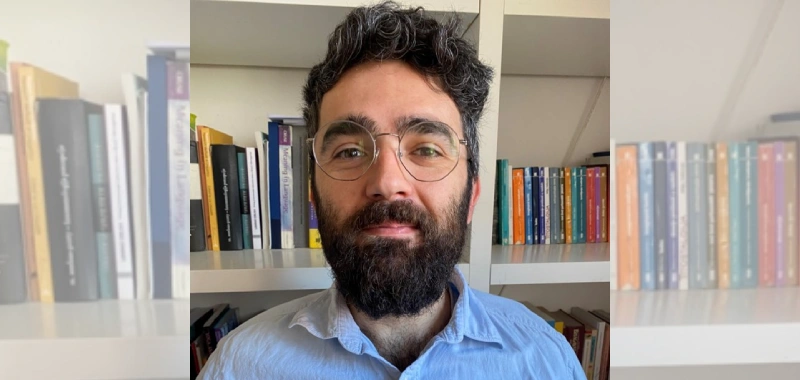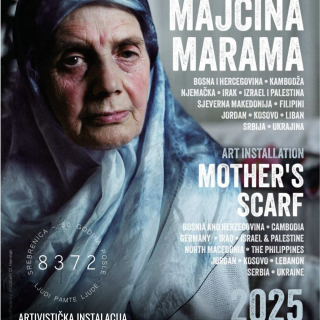We all in this region were shocked by the unspeakable tragedy in Serbia, during which eleven children, among other persons, were killed at the Primary School ”Vladimir Ribnikar” in the Belgrade neighbourhood Vračar and the town Mladenovac.
On this occasion, I would like to extend my condolences to the families. I feel with every person that was affected directly or indirectly by these events. When children get hurt, everything is re-examined – starting from their upbringing, over the environment, availability of weapons, undesirable impact of new technologies on the society in general and its system of values. We ask ourselves, almost always too late, what we have done as individuals and as a society to prevent such tragedies. We also pose ourselves the question how something so terrible as the killing of children can be commemorated. Should the school be closed, bulldozed, turned into a museum or memorial? We know that the system has failed and that it is necessary to deeply reflect about the next steps.
Although we still do not know how the local communities will deal with such pain over the long term, and which commemorative practices will result from the wish of the community to remember, we do have some basic ideas about it in the days following such an event. Following the initial shock, the community responded by gathering in front of the school, lighting candles and leaving flowers. Walks ”against the violence” that followed in the days after the event gathered dozens of thousands of citizens and also resulted in a reaction of the authorities that attempted to respond with a counter-gathering due to the fear that such weekly walks might destabilise the system. The authorities voiced criticism that such protest walks were blocking the city and were preventing the inhabitants of Belgrade from moving freely. Political analysts also criticised them and stated that their requests were not properly articulated, that the protest had no future, since there was no leader or group with the idea on how to channel such energy. What is less visible and not expressed by those commenting this phenomenon is that such walks are the response of the community to the trauma. The walks are a form of commemoration in which people with their individual voices, dispersed thoughts and numerous questions find solace in the multitude. For this very reason, the question to be asked is not what is next, but rather when is the next step?
We in Bosnia and Herzegovina, more specifically the individuals that participate in the initiative ”Because it concerns me”, know very well that neither closure nor justice happen overnight, since our war trauma is still present after three decades. The question ”when will we make the next step?” is indefinitely prolonged, maybe postponed until some other, maybe better people will come along. The suffering of our communities is history that still has not become the past, as Mina Vidaković from the SENSE Centre pointed out. For this reason, the White Armband Day in Prijedor is not a matter of fact finding, since such facts are available to everyone wishing to find them and understand them. They are scattered at courts, institutes for the missing persons, mass graves, personal histories of suffering, but they are still available to every reasonable person searching for material and immaterial evidence on the suffering. This is the day on which we turn to the community, to our members that suffered (every innocent person that suffered should be one of us), when we leave roses and repeat the names of killed children in the absence of a monument.
No tragedy is the same. Tragedies cannot be compared and this text should not be understood as anything else than honest condolences to the family members of the killed children. The death of any child is terrible for the society, community, parents, but also concerned individuals. For this very reason, we all are interested in the justice for children and closure for parents. The killing of 102 children from Prijedor is history that still has not become part of the past, since they have not been recognised as victims by the community they come from. We are still dividing the children due to our immaturity and lack of willingness to bury the wars of the 1990s.
As far as I am concerned, you may continue fighting about the conflict from the armchairs of high politics, provide historical and layman interpretations of events in Prijedor, but do leave ideological and ethnic fights about the conflict in Bosnia and Herzegovina aside. The initiative ”Because it concerns me” requests the city authorities to continue the dialogue about the monument and not reject any of our children that were killed in this unfortunate war. Let us remember our children because of everything they could and should have become and done for this city. Let us show the children of today that we do care and that we will always take care of them. A post factum discussion is counterproductive, it does not lead anywhere, but to the blind alleys of the national consciousness. Remembrance without hate and bitterness can show them a way forward.
For this reason, we wish to ensure that the wrong towards our children that is repeated in this city every year is righted. That is the reason why several of us are walking and leaving roses on the square. Every year, we have to defend our honourable intentions and the wish for Prijedor to have a monument dedicated to the killed children. Our wars (yes, those are our wars, just as the children) have not killed 102 children in Prijedor by chance. Although they were so unlucky to get killed, these wars also killed the future of many other children from Prijedor. For this reason, we have been gathering in the community for years, leaving the roses on the square and repeating their names.
Zoran Vučkovac, is a member of the initiative ”Because it concerns me”, a co-founder of the Banja Luka Social Centre (BASOC), and PhD student in Sociology at the University in Gisen. He is about to complete his PhD thesis on the intertwined history of labour in the transition and post-war remembrance policy in Bosnia and Herzegovina.




